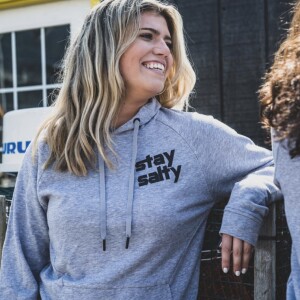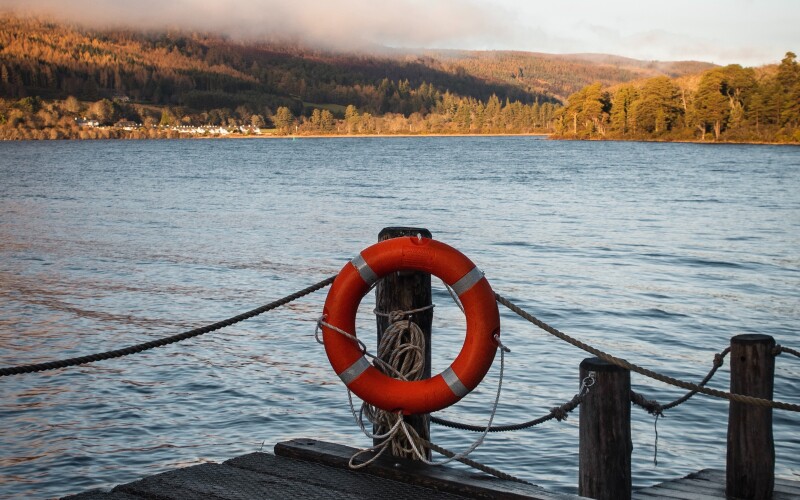U.S. Senators Susan Collins (R-ME), Dan Sullivan (R-AL), and Edward Markey (D-MA) led a bipartisan group of Senators introducing the Fishing Industry Safety, Health, and Wellness Improvement (FISH Wellness) Act. This legislation will build upon the success of the Commercial Fishing Occupational Safety Research & Training Program to further address the range of occupational safety and health risks that fishermen face, which include worker fatigue and substance use disorder. Authorized funding for the program will increase, and research and training grants will become more accessible by eliminating match requirements.
At this year’s Pacific Marine Expo, a group of commercial fishing industry members came together to discuss strategies for addressing commercial fishermen’s mental health. Generations of fishermen have indirectly dealt with mental health challenges, and the new generation wants to see these issues explored in a much more direct manner.
“Providing our next generation of fishermen and women with the mental health and substance abuse care that they need is vital to the success of our industry,” said Andrea Tomlinson, founder and executive director of New England Young Fishermen’s Alliance. “Commercial fishing is the second most dangerous job in the US after logging, and these workers require extra mental and behavioral health support due to the strenuous and challenging conditions of this valuable trade.”
Opening the conversations within the commercial fishing community can weigh heavy, but also normalize creating a solid support system with further support from U.S. Senators with the FISH Wellness Act. In addition to the work on this act, Senator Collins has worked tirelessly on the Working Waterfront Preservation Act to help preserve access for the nation’s fishermen and maritime workings to the waterfronts in coastal communities. Collins has helped keep the fishing industry alive since holding her seat in 1997.
“Maine is known around the world for our proud fishing heritage. The hardworking men and women that make up our state’s fishing industry face hazardous and unforgiving conditions, and I am pleased to be working on this effort to help get them the safety training and mental health resources they need.” Senator Collins shared.
The fishing and training organization will continue to reach out to members of Congress to encourage them to support these changes and remind them that they have a story to tell about the culture and safety of the commercial fishing industry. Respect for the ocean is a lesson handed down from generation to generation, and safety training is becoming part of that tradition. Jessica Hathaway, senior fisheries and seafood policy consultant for Ocean Strategies, shares in a recent National Fisherman article.
Fishing Partnership Support Services said they have trained over 2,000 fishermen from Jonesport, Maine, to Wanchese, North Carolina, since the grants began in 2019. “With this funding, fishermen can bring training to their home ports that will save lives.” Shared founder, J.J. Bartlett.
While Senator Sullivan served as Alaska’s Attorney General and Commissioner of the Alaska Department of Natural Resources, his priority was protecting Alaskans, their physical safety, financial well-being, and individual rights, particularly Alaska’s most vulnerable.
“Fishermen contend with extreme weather, long distances and periods away from shore and family, and often strenuous working conditions- factors that contribute to the industry being consistently ranked among the most dangerous in the country,” said Senator Sullivan. “I’m glad to introduce the FISH Wellness Act with Senator Markey, which would expand job safety training opportunities to support our fishermen as they sustainably harvest a world-class renewable resource and strengthen our coastal economies.”
Senator Markey stands for the priorities and values of Massachusetts and looks forward to further expanding job safety within an industry that employs a large state population. According to NOAA Fisheries, the commercial fishing industry had the highest sales, income, and employment impacts in MA, coming in at $4.4 billion in sales, $2.3 billion in income, and creating 83,000 jobs.
“Every day, our fishermen are faced with demanding and dangerous working conditions that take both a physical and mental toll, all while they work to bring food to the tables of families across the country,” said Senator Markey. “The FISH Wellness Act will provide much-needed funding to ensure that fishermen are getting the information and resources they need to stay safe and healthy on the job.”
In addition to Senator Collins, Sullivan, and Markey, the FISH Wellness Act was cosponsored by Senators Merkley (D-OR), Murkowski (R-AK), Shaheen (D-NH), and Wicker (R-MS). The official Act can be found here.







